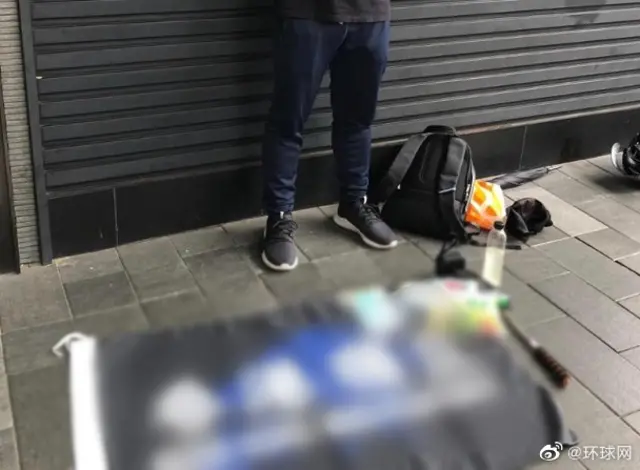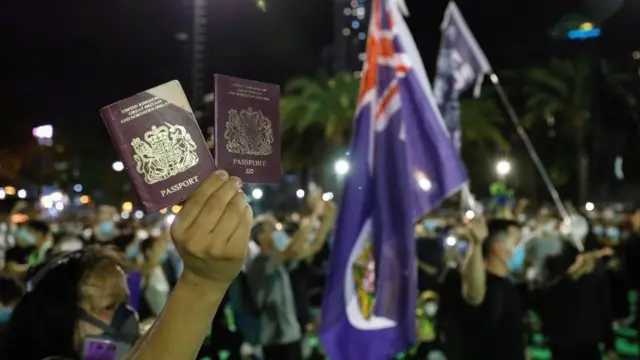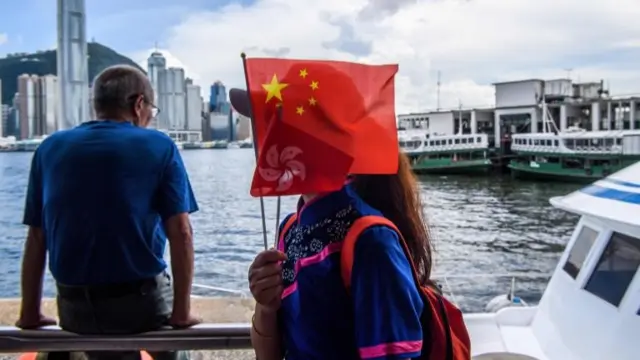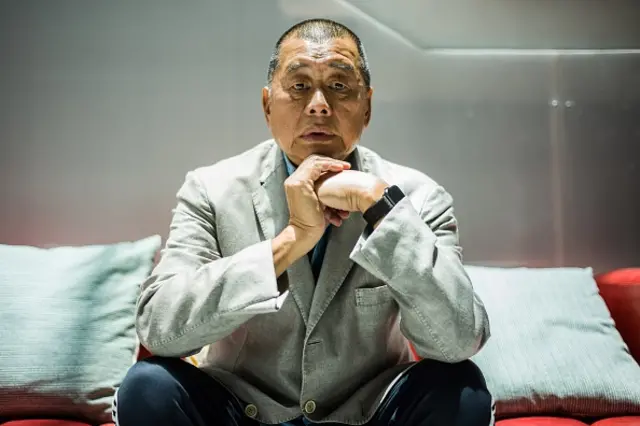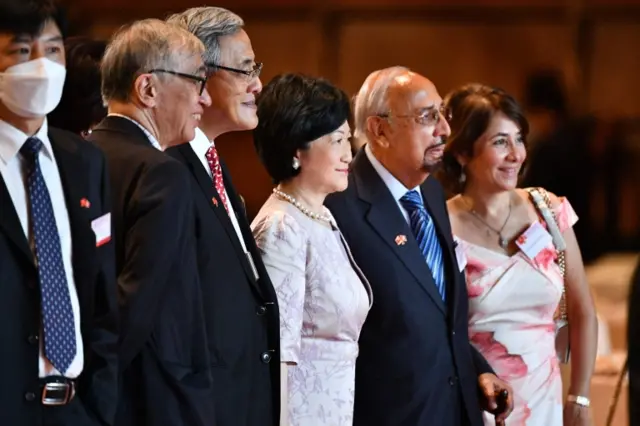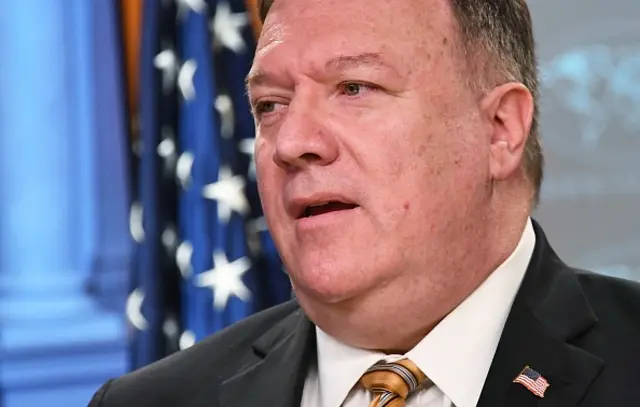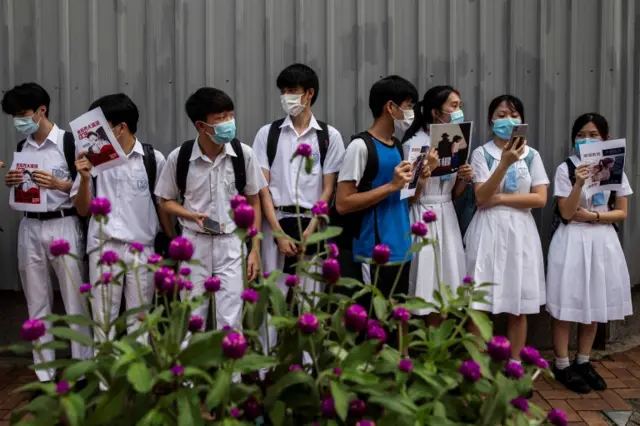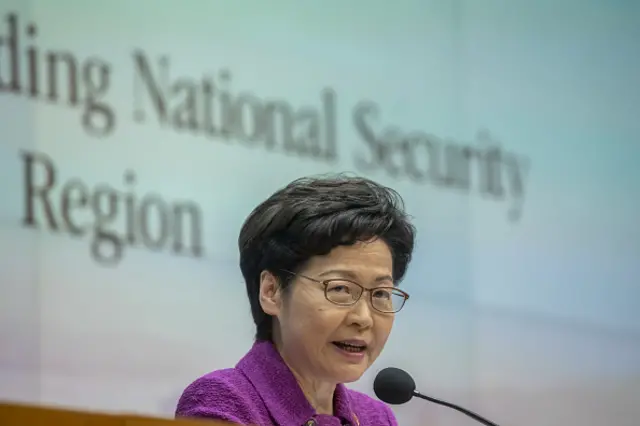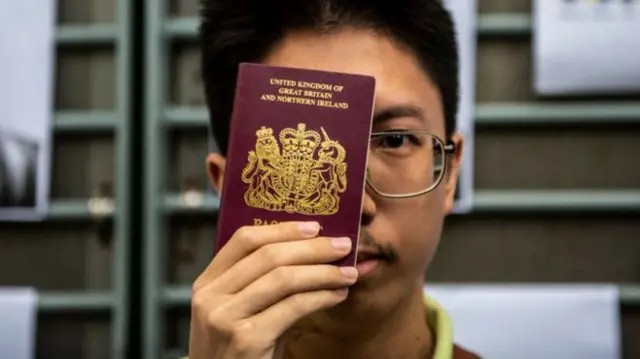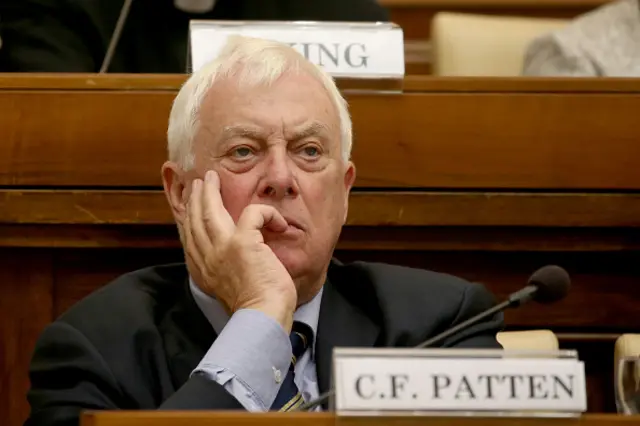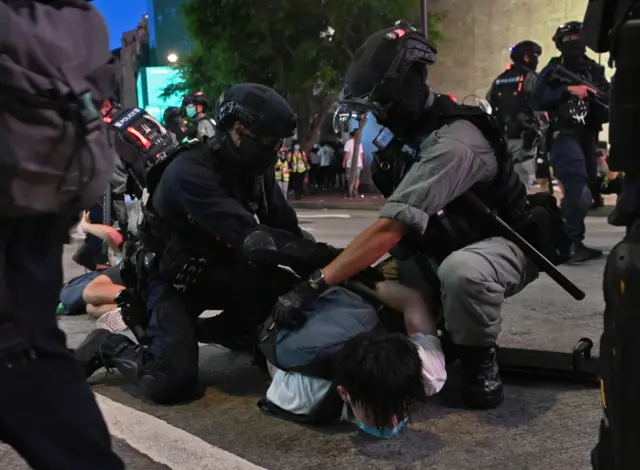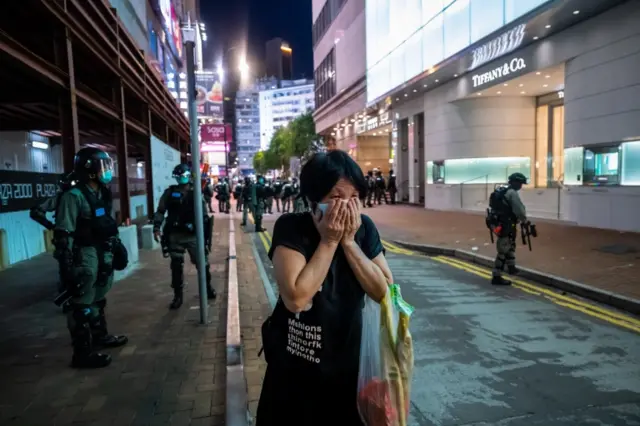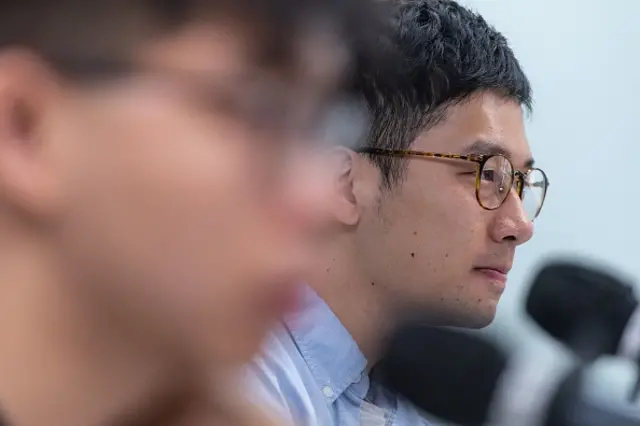Live coverage endspublished at 17:27 BST 1 July 2020
We are ending our live updates of Wednesday's protests in Hong Kong that follow the introduction of a controversial new security law imposed by Beijing. Thank you for being with us.
Here's a recap of the day's main events:
- Violent clashes have taken place and police used water cannon, tear gas and pepper spray on demonstrators. One officer was stabbed in the arm by rioters, police said
- More than 300 people were arrested, nine of them under the new legislation which targets secession, subversion and terrorism
- Britain said it would grant up to three million Hong Kong citizens the right to live and work in the UK following China's decision
- Protesters say Beijing wants to erode the territory's freedoms enshrined in law after Britain handed Hong Kong back to China 23 years ago
- China has dismissed the criticism and said it will not allow foreign interference in its domestic affairs

